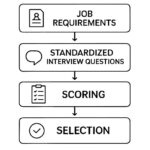Getting over addiction is a difficult and life-changing process. Drug and alcohol rehab programs can make the difference for someone with addiction seeking help and turning their life around. But recovery is not just about the interventions we use to treat the illness of addiction; it is the networks of support for people attempting to recover from an illness and a supportive environment for people trying to get well.
Menu list
Understanding Comprehensive Support
Quality care in alcohol and drug rehab consists of a lot more than medical monitoring and detox. Medical treatment is necessary to help individuals safely deal with withdrawal symptoms, but a whole-person approach is necessary to get to the heart of the emotional, psychological, and social condition that leads to addiction in the first place. This type of reinforcement means that patients recover from physical dependence and acquire the skillset and psychological toughness required for maintaining future sobriety.
Emotional and Psychological Assistance
A lot of addiction is rooted in deeper emotional or psychological problems. Stress, trauma, anxiety, and depression are all factors in addiction. In-depth drug and alcohol rehab programs offer counseling and therapy to assist individuals in dealing with these issues. Cognitive behavioral therapy (CBT), one-on-one therapy, and group sessions can teach coping mechanisms, help people identify their triggers, and develop healthier thought patterns. By treating the causes of addiction itself, addicts are going to have less chance of relapsing and be more likely to create the kinds of habits that lead to lasting recovery.
Social Support and Peer Networks
Healing is seldom a journey taken alone. The relative threshold of success of a person greatly depends on the social surroundings. Many rehab programs focus on peer support through group therapy, 12-step programs, or one-on-one mentorship. Knowing I am part of a community of people in the same struggle is inspirational and keeps me accountable and connected. Social support is what helps patients fight the isolation and grow a network of understanding people who can share their own experiences and advice.
Family Involvement
The effects of addiction do not just target the individual; they also consume families and relationships. There is often a family therapy component in full rehab programs to repair trust, promote healthy communication, and prevent relapse as loved ones learn about addiction and recovery. Including family support allows patients to go back to improved home environments that minimize the chance of reversion and reinforce principles of recovery over time.
Aftercare and Ongoing Support
Recovery isn’t over once a patient has been discharged from rehab. To prevent relapse, it is necessary for the patient to have continued support, such as outpatient therapy, counseling, and connections to community resources. Aftercare programs provide ongoing support, help manage potential triggers, and provide tools to deal with the real world. The professionals at holistic drug and alcohol treatment centers understand that achieving long-term sobriety is an ongoing and arduous process, and support is a must for long-term success.
Tailored Approaches for Individual Needs
Addiction isn’t the same for everyone. Successful rehab programs realize the need for customized, attitude-adjusting treatment that targets the medical, psychological, and social effects of your diseases. Luxury Rehab centers can offer focused interventions that are designed specifically to help you succeed by personalizing treatment approaches. This individualized focus guarantees that each patient has the opportunity and access to the tools and attention that enable them to pursue their goals.
Conclusion
The path to recovery from an addiction is nuanced, rigorous, and deeply personal. Medical care is only part of rehab, and it’s the support that helps people put their lives back together. Emotional and mental health counselling, social and family support, aftercare programs, and personal treatment plans are conjoined holistically to ensure success. There are some things you can do if you want to help a drug and alcohol rehab program that focuses on full recovery, which is the only way to really have a successful, lifelong recovery. By tackling all aspects of addiction and its repercussions, these programs teach individuals how to regain health, rebuild relationships, and begin living addiction-free lifestyles.





